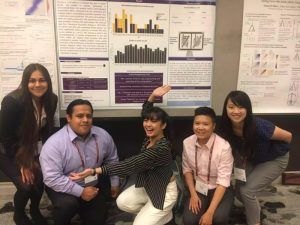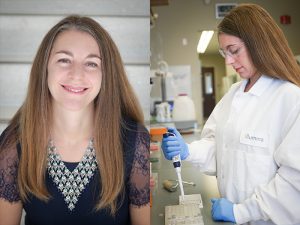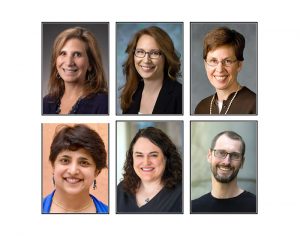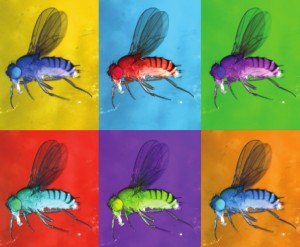Enter your address to receive notifications about new posts to your email.
Featured
-
Featured
“Predicting” the future: how genomic prediction methods anticipated technology
A landmark paper published in GENETICS founded the field of genomic prediction before the requisite technology was available. When a new technology is developed, it can allow scientists to make great strides in addressing longstanding questions. Occasionally, however, researchers think so critically about a knowledge gap in their field that they’re able to propose a…
-
Featured
Tips for a successful Hill Day
Guest post by Giovanna Collu. Are you planning a visit to Capitol Hill to advocate for science? We asked Giovanna Collu, former Co-Chair of the Early Career Scientist Policy Subcommittee, to discuss the lessons she learned representing GSA at a Hill Day organized by the Federation of American Societies For Experimental Biology (FASEB). As well…
-
Featured
Dorit Zuk on her unconventional career journey
A division director at NIH, Dorit Zuk has a career that spans basic research, scientific publishing, and policy. She shares how she transitioned from different positions and advice for managing a team. In the Decoding Life series, we talk to geneticists with diverse career paths, tracing the many directions possible after research training. This series is brought…
-
Featured
Women’s hidden contributions to theoretical population genetics
An analysis of the acknowledgment sections of theoretical population genetics papers from the 1970s and 1980s reveals overlooked contributions of women to the foundation of the field. Theoretical population genetics has a gender imbalance, and it’s easy to get the impression that it’s always been this way. After all, introductory genetics courses emphasize important concepts…
-
Featured
Does Candida grow on trees?
An opportunistic human pathogen makes itself at home on old oaks. At one point or another, most people have played host to the common yeast Candida albicans. Around 40-60% of healthy adults carry around it in their mouth or guts; in immunocompromised people, however, this normally harmless cohabitant becomes a deadly pathogen. Generally thought to…
-
Featured
Loaded words
Guest author Amir Teicher discusses how the concept of “genetic load” traces its roots back to eugenic thinking, as described in his recent Perspectives article in GENETICS. The possibilities opened up by advances in genome sequencing have recently spurred discussions on the burden, or cost, that mutations pose to organisms and populations. Does the relaxation…
-
Featured
Pillars of the community
GSA President Jeannie Lee announces a new Strategic Plan for GSA. When I became President earlier this year, I set out with two major goals in mind for the Society in 2018: (1) To establish a new Strategic Plan that would map out a vibrant 5-10 year future for our community that includes scholarship, support…
-
Featured
Amanda Young on the excitement of a career in product development
Scientist and manager Amanda Young develops applications for next-generation sequencing at Illumina. She talks about how careers in product development broadly impact the scientific community and how you can tailor your skills to land a job. In the Decoding Life series, we talk to geneticists with diverse career paths, tracing the many directions possible after research training.…
-
Featured
New members of the GSA Board of Directors: 2019–2021
We are pleased to announce the election of six new leaders to the GSA Board of Directors: 2019 Vice-President / 2020 President Denise Montell Robert and Patricia Duggan Professor, Distinguished Professor, Molecular, Cellular, and Developmental Biology, University of California, Santa Barbara Denise Montell’s research aims to uncover the fundamental mechanisms that control how cells build…
-
Featured
Family tree of 400 million people shows genetics has limited influence on longevity
Study of huge Ancestry.com pedigree suggests assortative mating may have inflated previous estimates of life span heritability. Although long life tends to run in families, genetics has far less influence on life span than previously estimated, according to a new analysis published in GENETICS. Ruby et al. used a data set of over 400 million…
-
Featured
Time flies: Get ready for #Dros19
Registration is now open for the 60th Annual Drosophila Research Conference! In the fall of 1958, a handful of colleagues met to talk “more or less endlessly” for two days, mainly about the fruit fly Drosophila. Most of the dozen or so participants were members of James F. Crow’s laboratory at the University of Wisconsin–Madison.…











